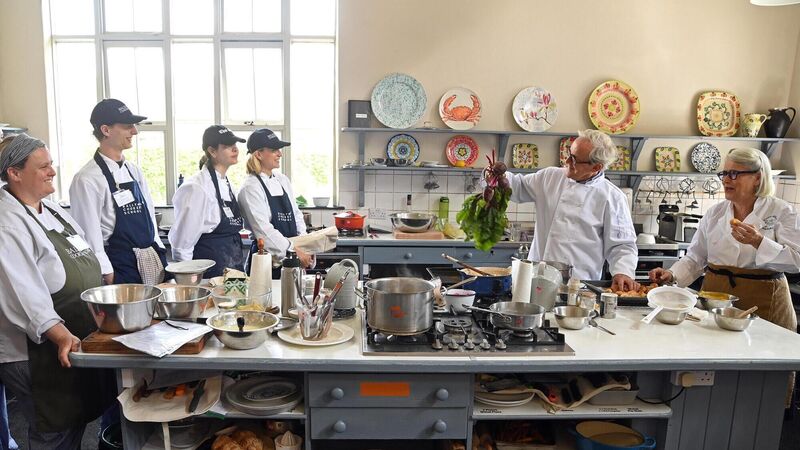Ireland needs a minister for food to better serve our needs

Ballymaloe Cookery School co-founders Rory O'Connell and Darina Allen with students. Darina Allen has been calling for a minister for food for years. File picture: Denis Minihane
In recent weeks, I have found myself surrounded by some of the brightest and most committed minds in food. At Food on the Edge in Galway, I listened to international speakers discuss global food systems, policy, and the links between food, health, and climate. A week later, at the Samhain Food Festival in Kells, the focus turned homeward, centring on Ireland’s urgent need for a joined-up national food policy.
Both events made something painfully clear. We have a department for agriculture. We have health. We have education. We have social protection. Yet no one department takes full responsibility for what Irish people eat. The food we produce and export is world class. The food we serve our children and our patients often is not.













